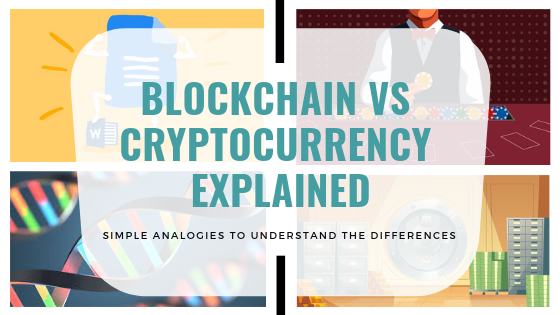
Blockchain Empowering Women Around the World
If you’ve heard of Bitcoin, then you’ve probably heard of the technology behind the cryptocurrency: blockchain. What you may not know is that blockchain and digital cryptocurrencies are helping women from across the globe to transform their lives.
What is the Blockchain?
Put simply, blockchain is an immutable ledger. It contains a series of data points that strung into time-stamped blocks. These blocks are non-modifiable and are distributed across a global network of computers.
Blockchain, however, can do far more than power cryptocurrencies. From securing personal records to contracts to payments, it is also driving the next frontier of women’s economic empowerment all over the world.
Learn more about the blockchain by reading these simple analogies.

Payments & Fees
As much as the #metoo and feminism movement has been rising in the recent years, 42% of women globally are still lacking access to banking services. Most of them do not even own a bank account. However, blockchain technology is ready to close down the gap, as free transactions are made possible (depending on which cryptocurrency is used). Since the technology is based on peer-to-peer transactions, blockchain would allow payment and banking transactions to function without a third-party intermediary. Likewise, there are no costs associated with opening a cryptocurrency wallet, removing a significant barrier to entry for many women, who are less likely than their male counterparts to afford maintenance fees. These maintenance fees or minimum balance requirement are normally a result of women’s overrepresentation in part-time and informal employment. Therefore, this disruptive nature of blockchain holds immense promise for female financial autonomy.
For example, blockchain startups such as Spenn have already been exploring the possibility of blockchain payments being made via SMS, This allows instant access of financial services without the dependence of Wi-fi and smartphones. Not to mention, the deeply entrenched cultural norms and women’s unique financial constraints have long contributed to the 23% disparity of Internet access different gender in developing countries. Consequently, blockchain projects can effectively eliminate this economic challenge women commonly face, especially in rural areas.
Legal Contracts
According to the Food and Agriculture Organization of the United Nations report, women own less than 20% of the world’s lands. In the majority of countries, inadequate enforcement of land laws and differing constitutions and customary law across genders have hampered women’s land rights significantly. Furthermore, male-dominated social structures still govern many household and societies, adding into the land ownership challenge for women.
A blockchain ledger can enable women to protect their property ownership as the technology has the ability to verify transactions and counter forgery. Due to blockchain’s decentralized feature that distributes software across its network and algorithmically verifies each transaction, blockchain-powered contracts remove the potential of unruling rejection of land ownership. This means no government official nor male relative could oppose a woman’s land or property ownership rights if the contracts are inserted into a blockchain ledger.
Personal & Official Records
In countries where infrastructure is developing, women often unable to gain an official identification due to lack of official documents like birth certificate or an updated passports. Oftentimes, this is common among women because male relatives are used to holding their IDs. Without proper identification documents, these women, subsequently, were not allowed to set up a bank account or apply for jobs, restricting women’s financial freedom and social mobility.
However, blockchain technology is liberating women from these financial gender disparity. Blockchain’s capacity to file personal records in a safe and cost-efficient manner provides women a personal digital identification store accessible to them anywhere, at any time. In turn, complete ownership of digital ID could allow women to own land and bank accounts or take advantage of job opportunities in the formal economy.
One example of an ongoing blockchain project is the ID2020. It is featured in our social media campaign #PSFunFactFriday.
Follow our social media channels to never miss fun fact Fridays like this:
Facebook | Instagram | Twitter | Youtube | LinkedIn
Careers in Technology
Like STEM industries, the blockchain world is still dominated by men both in terms of its developers, entrepreneurs and even users. It was one of the biggest technology industry where women are underrepresented. However, this is about to slowly, yet steadily change, because the gender gap in the blockchain industry is closing in as more women move into the market.
Digital Currency Group’s Meltem Demirors spoke in her interview with Bloomberg, that the “sands are shifting” in the blockchain industry. Now, more women are investing, integrating and innovating this technology into their lives. There is a hopeful future as women working in blockchain are changing the notion of tech as a boys-only club.
In a hopeful celebration of women in blockchain industry, here is an infographic from MrBtc.org on the top influential women of the crypto and blockchain space.

Final Thoughts
Ultimately, blockchain is not a magic formula for gender equality. Ninety percent of economies still have laws on the books that impede women’s economic opportunities. Evidently, many countries that have granted legal equality for women still have possibilities of customary law superseding statutory law.
Simply put, blockchain can’t change the law, nor can it reconstruct social norms. However, it can serve as a transformative tool for empowering women and minorities around the world. Blockchain is providing women the economic opportunity in places where they have rights, but lack the infrastructure to realize them. Eventually, blockchain is giving the chance for women to spearhead innovation in today’s world.
There is much more blockchain technology has in store for the women community, other than in the sphere of financial standing. The world of online dating and matchmaking is the next industry to be heavily disrupted by blockchain. Find out how blockchain can liberate women from traditional matchmaking and online dating scams in our latest article.